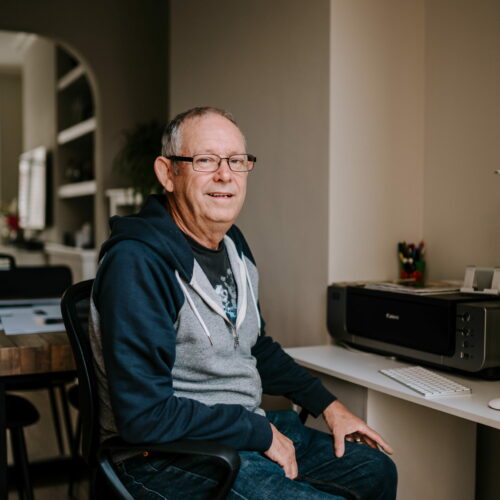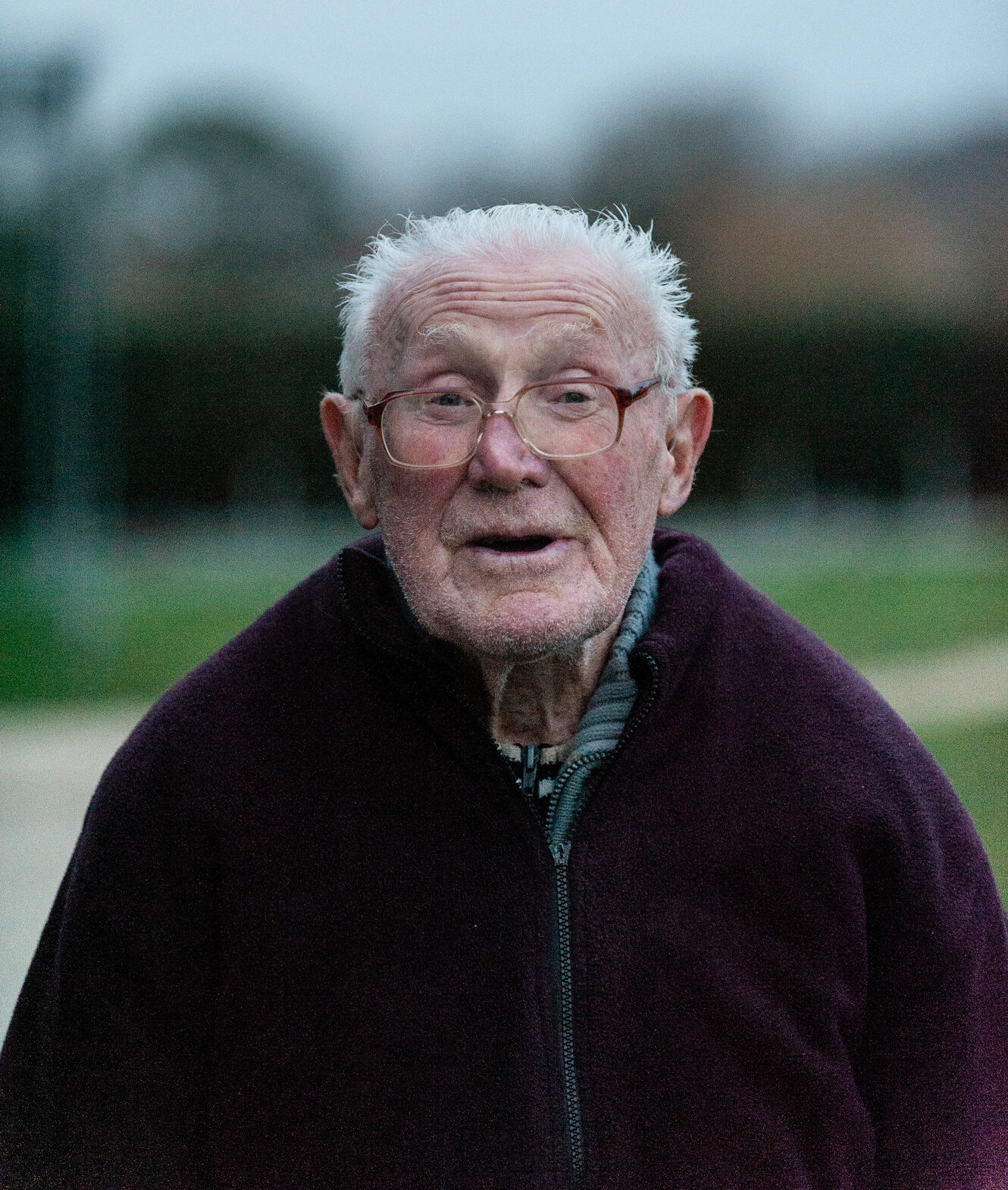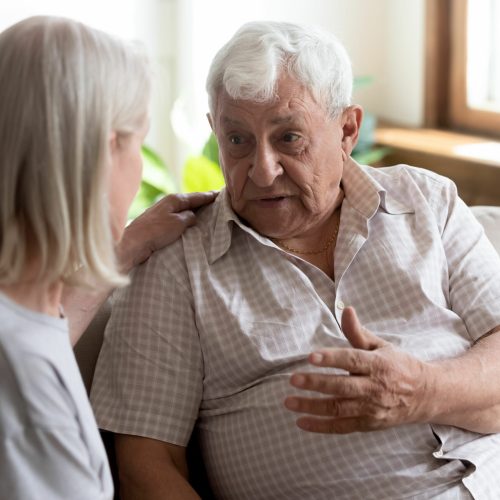Planning for the future.
COPD is a progressive condition, which means it gets worse over time. There are things that you can do that will help manage and slow down the change in your symptoms, but it is important that you also think about what your needs will be in the future.
On this page we will discuss the following topics:

Travelling with COPD
Living with a chronic lung condition doesn’t mean you have to give up holidays or visiting friends and family. It just means that trips might require a bit more planning ahead.
With the truly international world we live in holiday options can seem limitless, but when travelling with COPD it is good to do a bit of research into your destination.
Want to discuss this topic in your next appointment?
Add this to your discussion list as a handy reminder to discuss this with your doctor, nurse or pharmacist at your next appointment.
Things to think about include:2
Weather
consider if a change in temperature could trigger a flare-up
Pollen
think about the seasons and if there will be high pollen levels when you visit
Altitude
there is less oxygen in the air at high levels such as in the mountains, so talk to your medical team about your destination before travelling
Pollution
this can irritate your lungs or trigger a flare-up. You can check the air quality of cities you want to visit at the World Air Quality Index website.
Insurance is also an essential part of travelling with a chronic health condition. You should check your policy and make sure it covers everything you might need should you become ill while you’re away.3
Flying with COPD
That weird feeling in your ears as you take off and land? That is due to the change in pressure in the aeroplane to adapt to the high altitudes. Unfortunately, it also means there is less oxygen in the air during the flight. If you need oxygen for exercise or sleep, you might also need it for flying, so please talk to your medical team before travelling.4
Plan ahead
Once you have an idea of where you would like to go on your next adventure, make an appointment with your healthcare professional before you book anything. They will be able to advise you on how best to make sure you have a safe, and enjoyable, time.
Depending on where you are going, for how long and how you will travel, there are several things you might need to organise in advance:2,4
- Vaccinations – your healthcare professional can tell you what you need, and if they are OK to have with your treatments
- Fitness-to-fly test
- Medicines – make sure you have enough for the whole time you are away if possible
- Check your Rescue Pack
- Think about the treatments you will need on your journey and make sure they are accessible, i.e. in your hand luggage
- If you need oxygen, check with your airline if there are forms for your doctor to complete

Add a note to your discussion list to remind you to talk about your holiday plans at your next appointment. Remember, with a bit of planning, travel is possible with COPD so have a great holiday!
Measuring your airways
As part of your diagnosis you will have had a test with a machine called a spirometer (for information on diagnosis see How is COPD diagnosed?)
This test measures how blocked your airways are, and gives your doctor an idea of the stage of your COPD:5,6
Stage 1 - Mild
• Your symptoms are mild
•You may not notice an impact on your life
• Your lungs are working about 80% as well as completely healthy lungs
Stage 2 - Moderate
• Your symptoms may be the same as with mild COPD but you experience them more often and they may be more severe
• You may also have flare-ups
• Your lungs are working between 50% and 80% as well as completely healthy lungs
Stage 3 - Severe
• Your airways are blocked enough to cause real difficulty breathing
• This affects your physical activity
• You require lots of treatment and even oxygen therapy
• Your lungs are working between 30% and 50% as well as completely healthy lungs
Stage 4 - Very severe
• Your COPD symptoms are severe and seriously affect your quality of life
• You will experience more frequent flare-ups and require oxygen therapy
• Your lungs are working less than 30% as well as completely healthy lungs.
You may also have heard the term ‘GOLD grades’ when talking to a healthcare professional about your COPD. This is because these stages were defined by the Global Initiative for Obstructive Lung Disease – or GOLD.5
The spirometry test alone, however, does not tell the whole story of how COPD affects you. To measure how your COPD symptoms are impacting on your life you may be asked to complete several questionnaires.5
Specific questionnaires rate symptoms such as breathlessness, coughing, mucus (phlegm), your energy and day-to-day activities on a scale so that your doctor can decide what the best treatments are for you.5
Keeping records of these assessments also allows your medical team to monitor how your condition changes over time, or if it has stayed the same between appointments.
Remember, although COPD is a progressive and currently incurable condition, it is treatable, and many people can live long and happy lives even as their condition worsens.7
End of life care
Thinking and talking about the end of life isn’t easy and it’s sometimes difficult to know where to start. So, it’s important that you take your time and work through what you can, when you can.9
You may wish to talk to your family and friends, nurse, hospice and healthcare teams. Set aside time to have these conversations with those close to you about the things that are important to you, so they are clear about what you do or don't want. Making these decisions and writing them down is part of what is sometimes called an ‘advance care plan’.9
You may also want to consider getting legal advice and talking to a solicitor.9
Sometimes it’s tricky to know where to start in this discussion and planning process. Here are some questions that you might want to discuss: 9
- If possible, where would you wish to die?
- What can be done to support your family and friends?
- Have you organised your will and financial affairs?
- What can be done to make you as comfortable as possible?
- Are there any specific treatments you don't want? For example, resuscitation or a feeding tube
- How do you feel about organ donation?

Asthma + Lung UK have more information on advance care planning and end of life decisions, available here.
If you would like to start an advance care plan, make a note in your discussion list to ask your medical team at your next appointment.
Want to discuss this topic in your next appointment?
References
- Asthma + Lung UK. What can you do to manage your condition? Available at: https://www.asthmaandlung.org.uk/conditions/copd-chronic-obstructive-pulmonary-disease/what-can-you-do-manage-your-copd
- Asthma + Lung UK. Travelling safely with a lung condition. Available at: https://www.asthmaandlung.org.uk/living-with/travel/safely
- Asthma + Lung UK. Travel insurance. Available at: https://www.asthmaandlung.org.uk/living-with/travel/insurance
- COPD Foundation. Traveling with COPD. Available at: https://www.copdfoundation.org/Learn-More/I-am-a-Person-with-COPD/Traveling-with-COPD.aspx
- Global Initiative for Chronic Obstructive Lung Disease (GOLD). Global strategy for the diagnosis, management and prevention of COPD. Available at: https://goldcopd.org/2023-gold-report-2/
- COPD.net. Explaining the COPD stages. Available at: https://copd.net/basics/copd-stages/stages-explained
- COPD Foundation. Stages of COPD. Available at: https://www.copdfoundation.org/Learn-More/I-am-New-to-COPD/Stages-of-COPD.aspx
- NICE Clinical Knowledge Summaries. Scenario: End-stage chronic obstructive pulmonary disease. Available at: https://cks.nice.org.uk/topics/chronic-obstructive-pulmonary-disease/management/end-stage-copd/
- Asthma + Lung UK. Thinking and planning ahead. Available at: https://www.asthmaandlung.org.uk/conditions/end-life/thinking-planning-ahead


